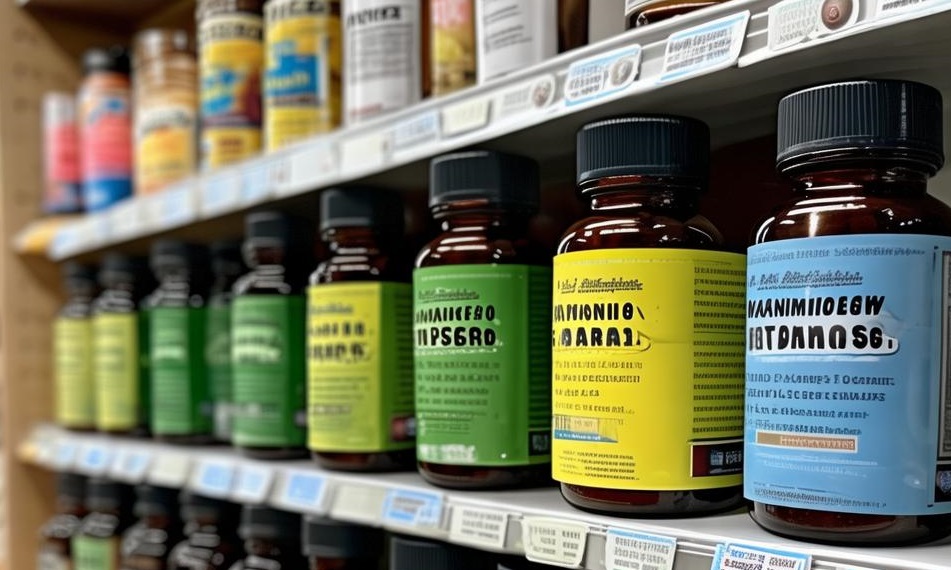As men age, their testosterone levels gradually decline, leading to decreased energy, weakened sexual function, muscle atrophy and other problems.
In order to improve the quality of life, many men begin to pay attention to how to increase testosterone levels. When discussing testosterone boosters, you need to be very cautious because these substances may have a significant impact on your health.
Regardless of where you are, the use of any medication or supplement should be carried out under the guidance of a doctor, especially those that affect hormone levels. This article will introduce you to the best testosterone boosters to help you improve your testosterone levels in all aspects.

Understanding Testosterone Boosters
Testosterone is the primary male sex hormone and is essential for male development and health. It affects:
- Sexual desire and sexual function
- Sperm production
- Bone density and muscle
- Red blood cell production
- Physical energy and mood
Low testosterone levels, also known as low testosterone or testosterone deficiency, can cause a range of signs and symptoms. Here are some common symptoms:
- Sexual dysfunction: including loss of libido, erectile dysfunction or premature ejaculation.
- Physical and muscle changes: loss of muscle mass, decreased strength, and decreased power.
- Mood changes: mood swings, depression, irritability, and lack of motivation.
- Increased body fat: especially accumulation of fat in the abdomen.
- Decreased bone density: may lead to osteoporosis.
- Sleep problems: such as decreased sleep quality and insomnia.
- Decreased red blood cell production: may lead to anemia.
- Breast enlargement: due to changes in hormone balance, hyperplasia of breast tissue may occur.
- Decreased sperm count: may lead to fertility problems.
- Thinning hair: especially on the head and face.
If someone experiences one or more of the above symptoms and suspects they may have low testosterone levels, they should consult a doctor for a professional evaluation and testing.
The doctor may recommend a blood test to measure testosterone levels and provide appropriate treatment recommendations based on the test results. It is important to note that some symptoms may also be a sign of other health problems, so an accurate diagnosis is important.
Testosterone boosters are substances or methods that increase testosterone levels in the body. Here are some common testosterone boosters:
- Drugs: such as testosterone replacement therapy, testosterone-releasing drugs, etc.
- Natural supplements: such as minerals and vitamins such as zinc, magnesium, vitamin D, and plant extracts.
- Lifestyle adjustments: such as a proper diet, regular exercise, adequate sleep, etc.
Best Testosterone Boosters
Testosterone, as one of the most important hormones in the male body, is of great significance for maintaining male health and shaping a masculine image.
When choosing a testosterone booster, you need to consider a variety of factors, including the drug’s efficacy, safety, side effects, method of administration, and individual health conditions. The following are some of the testosterone boosters that are widely considered to be effective
1. Pharmaceutical Testosterone Boosters
Pharmaceutical testosterone boosters effectively increase the testosterone level in the patient’s body through different mechanisms of action, thereby improving the symptoms caused by testosterone deficiency.
Testosterone Replacement Therapy
Testosterone replacement therapy is a method of directly supplementing testosterone, which is suitable for people with severely low testosterone levels.
It can effectively increase the testosterone level in the body through oral administration, injection, patch and other routes. However, it must be carried out under the guidance of a doctor and pay close attention to side effects.
Testosterone-Releasing Drugs
Such as clomiphene, human chorionic gonadotropin (HCG), etc., can stimulate the pituitary gland to secrete gonadotropin, thereby promoting the secretion of testosterone. It is suitable for patients with mild low testosterone.
2. Natural Testosterone Supplements
While some research supports the effectiveness of some natural testosterone supplements, the level of evidence is mixed. Some studies suggest that these supplements may be somewhat helpful in increasing testosterone levels, but the effects are usually not as significant as medication.

While natural testosterone supplements are generally considered safer than synthetic drugs, the problem is that there isn’t a lot of high-quality scientific evidence to support specific vitamins and minerals as effective ways to boost testosterone. Long-term use or excessive use of certain supplements may cause side effects.
Here are some natural testosterone supplements that are generally considered to boost testosterone levels or help maintain testosterone balance:
- Zinc. Zinc is an essential trace element for the human body and plays an important role in the synthesis of testosterone. Zinc supplementation can increase testosterone levels and improve male fertility. Food sources: lean meat, seafood, nuts, etc.
- Magnesium. Magnesium has a positive effect on maintaining testosterone levels. Studies have found that magnesium supplementation can increase testosterone levels in athletes. Food sources: green leafy vegetables, whole grains, bananas, etc.
- Vitamin D. Vitamin D is closely related to testosterone levels. Appropriate sun exposure or vitamin D supplementation can help increase testosterone levels.
- Plant extracts. Such as epimedium, yohimbe, and ashwagandha, have natural testosterone-promoting effects. They can be used as an auxiliary means to increase testosterone levels.
3. Exercise
Exercise plays an integral role in the discussion of how to increase testosterone levels. A natural and effective method, regular physical activity has been shown to increase the secretion of testosterone in the body, which can help build muscle strength, increase libido, and improve overall health.
Here’s a guide to understanding how exercise can be an important way to increase your testosterone levels.
- Increase strength training. Strength training is an effective means of increasing testosterone levels. Studies have found that regular strength training, especially heavy weight, low rep training, can significantly increase testosterone levels.
- Aerobics. Proper aerobic exercise can also help increase testosterone levels. Aerobic exercise can improve cardiopulmonary function and increase the supply of oxygen in the body, thereby promoting the synthesis of testosterone. It is recommended to do aerobic exercise, such as running, swimming, cycling, etc., 3-5 times a week for 30-60 minutes each time.
- High Intensity Interval Training (HIIT). High-intensity interval training involves performing high-intensity exercise for a short period of time, then resting for a period of time and repeating the process. Studies have found that HIIT helps increase testosterone levels.
Side Effects of Testosterone Supplements
Testosterone supplementation, as a common hormone therapy, aims to increase testosterone levels in the body and improve a series of symptoms caused by testosterone deficiency.
However, this therapy is not without risks. It may bring a series of side effects that affect the patient’s physical health and quality of life.
When considering testosterone supplementation therapy, it is important to understand these potential side effects so that you can reasonably evaluate and manage possible risks while pursuing treatment effects. Here are some possible side effects:
- Skin problems: Oily skin and acne. Thinning hair or hair loss.
- Hormone-related changes: Breast enlargement (gynecomastia).
- Reproductive system effects: In men, it may cause a decrease in sperm count, which may affect fertility.
- Cardiovascular effects: May increase the risk of cardiovascular disease, including heart disease and stroke. Increased risk of deep vein thrombosis (DVT).
- Liver problems, especially when using oral testosterone supplements. Edema. Fatty liver.
- Mood swings, including irritability or depression. Behavioral changes, such as increased aggression.
- If children are exposed to testosterone supplements, it may cause premature puberty and hormone-related developmental problems.
It is important to note that not all men experience these side effects, and the severity of side effects can vary from person to person.
Potential side effects should be discussed with a doctor before using testosterone supplements, and treatment should be taken under a doctor’s supervision. If any unusual symptoms occur, the doctor should be notified immediately.
Testosterone supplements should be used under the supervision of a doctor, only to treat confirmed low testosterone levels, and when the potential benefits outweigh the risks.
In addition, the doctor may regularly monitor the patient’s testosterone levels and overall health to adjust the dosage and monitor for side effects.
For Testosterone Boosters Last
In our journey of exploring testosterone boosters, we have learned about a variety of natural and artificial ways to increase testosterone levels. However, it is important to realize that no single supplement or drug can replace a healthy lifestyle and ongoing care.
When considering any testosterone booster, it is important to prioritize safety and long-term health. Remember that each person’s body is unique, so personalized medical advice and regular health monitoring are essential.
By eating a balanced diet, exercising regularly, getting enough sleep, and reducing stress, we can not only boost our natural testosterone production, but also enjoy the benefits of overall health.
Raising testosterone levels is not an overnight process and requires a multi-faceted approach. The best testosterone boosters include medications, natural supplements, and lifestyle adjustments.
When trying to increase testosterone levels, always do it under the guidance of a professional doctor to ensure safety and effectiveness. Through a scientific approach, you can improve your testosterone levels in all aspects, so that you can regain your vitality and enjoy a healthy life.
Frequently Asked Questions
What is testosterone?
Testosterone is a sex hormone that is mainly produced by the testicles of men and the ovaries of women, and also produced in small amounts by the adrenal glands. It has important effects on the health of both men and women, such as affecting sexual development, reproduction, muscle and bone mass, and sexual drive.
Do male testosterone levels decrease with age?
Yes, male testosterone levels typically decrease by about 1% per year after age 30. This can lead to symptoms such as low libido, loss of muscle mass, fatigue, irritability, and erectile dysfunction.
What are natural testosterone boosters?
Natural testosterone boosters are supplements of herbs and nutrients that help the body increase testosterone levels. They are different from testosterone replacement therapy, which is a medical treatment that requires a prescription from a doctor.
What are the effects of low and high testosterone levels?
Low testosterone may cause fatigue, depression, loss of libido, loss of muscle mass, and increased body fat. High testosterone levels may increase the risk of cardiovascular disease, mood swings, and other problems.
How can I tell if my testosterone levels are abnormal?
Common symptoms include fatigue, loss of libido, mood changes (such as irritability or depression), loss of muscle mass, and increased body fat. If you have these symptoms, you should consult a doctor and get tested.
When should you seek medical help?
If you suspect your testosterone levels are abnormal, or if you experience the symptoms listed above, you should consult a doctor for professional diagnosis and treatment advice.
